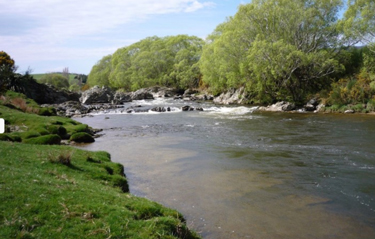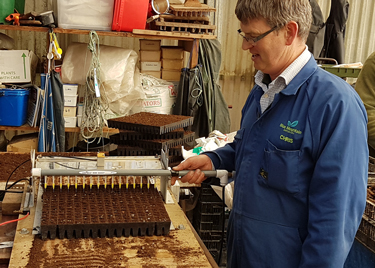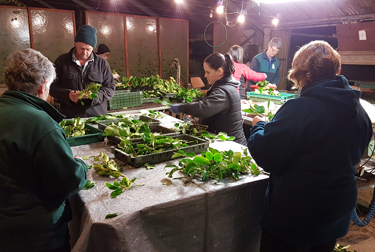Environmental restoration on the Pomahaka
Sarah Cameron finds a rural community taking the collaborative approach towards environmental restoration.
A two-year riparian planting project is underway in West Otago to improve the water quality in the Pomahaka River, driven by rural landowners, a swimming pool committee and a local plant nursery.
The in-stream restoration project is one of many being undertaken around the country, sharing the common goal of establishing riparian native vegetation to help filter out sediment and nutrients before they enter the waterways.
Family-owned plant nursery, Blue Mountain in Tapanui is one of the major players in the Pomahaka riparian project. Since the initiative’s launch in June 2017, the nursery has supplied the more than 24,000 plant seedlings that will be planted along the 4,000km of waterways in the coming months.
“The nursery got involved as a result of a discussion with West Otago dairy farmer Lloyd McCall, chair of the Pomahaka Water Care Group (PWCG),” says Blue Mountain’s Rebecca Hughes. “Lloyd had sat down with farmers to work out how many plants they would need for this riparian planting project, quickly realising they had a supply issue. Simply put, there was not enough riparian planting material. So we started talking about managing the production of a significant number of natives and our involvement went from there.”
As well as working closely with the PWCG and the rural community, the nursery works with the West Otago Swimming Pool Fundrasing Committee, who is raising funds for a new roof for their local pool. While Blue Mountain supplies the tools and the space, the Fundraising Committee provides the labour, as Rebecca explains.
“It’s definitely a joint project. We supply the seeds, the pots and potting mix, the glasshouse space and also our expertise. The pool committee donates labour to weed, space and repot, tending the plants until they reach a larger size than a standard riparian plant – we give them an extra year in prime growing conditions.”
Rebecca says the uptake from rural landowners has been “fantastic”, with farmers committing to purchase the plants. A deposit of $2 per plant is paid, with a further $3 paid over the following couple of years. Of that, $2 goes to the pool committee to cover their costs.
“Community groups and local business working together offer significant benefits,” adds Lloyd. “Each brings unique in-kind contributions for the collective good. Farmers are taking on the responsibility to make a difference to our waterways and a financial commitment to what will be a long-term project for improved water quality, stable erosion and increased
biodiversity.
“Additionally, as these plants are grown for local conditions and are a larger grade, they offer a greater strike rate in riparian zones and a better return on investment.”
To ensure the longevity of the planting, Blue Mountain is planning a series of workshops to help the volunteers and farmers maximise a plant’s start in life.
“We will teach them about optimum planting depths, plant combinations and how to successfully plant and manage riparian buffers on their properties. From the variety of natives available, we’ll also show them how to choose the best plant for the environment; whether it’s a bank that needs stabilising or shrubs and grasses further back – it depends on the lay of the land,” says Rebecca.
Planting is due for autumn 2018 and ongoing water quality measurement and assessment will be undertaken. Based on other similar projects and a large body of research, a significant improvement to water quality is expected.
“In smaller rural towns it is important to be innovative and work together as a community. We are lucky that there are so many innovative, forward-thinking stakeholders in this project.”
Natives for riparian planting schemes:
| Aristotelia serrata |
| Carex secta |
| Chionochloa flavicans |
| Chionochloa rubra |
| Coprosma propinqua |
| Coprosma rugosa |
| Cordyline australis |
| Corokia cotoneaster |
| Cortaderia richardii |
| Hoheria angustifolia |
| Hoheria sexstylosa |
| Nothofagus solandri |
| Olearia paniculata |
| Phormium cookianum |
| Phormium tenax |
| Pittosporum eugenoides |
| Pittosporum tenuifolium |
| Plagianthus regius |
| Poa cita |
| Pseudopanax crassifolius |
| Sophora microphylla |
| Griselinia littoralis |

8-Mar-2018

The Pomahaka River

Chris Hughes of Blue Mountain Nurseries, sowing seed.

Working bee creating cuttings

